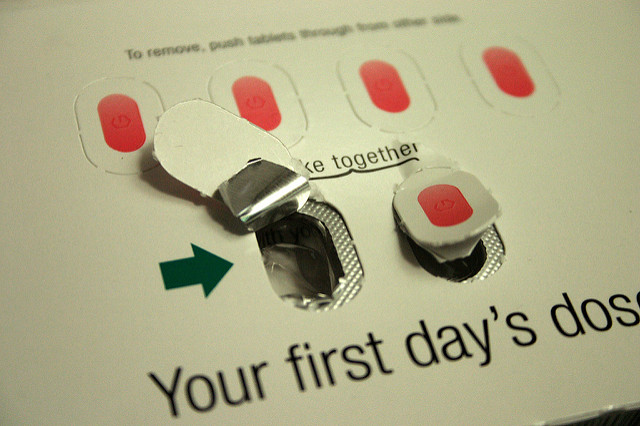
One of the first questions I ask patients on their initial visit involves their history of antibiotics use.
More often than not, I’ve found overuse leads to numerous problems, such as leaky gut.
Let’s not totally dismiss antibiotics. After all, they can be life-saving and in certain situations become absolutely necessary. They’ve saved millions of lives. We do not want to live without antibiotics in the 21st century.
At the same time, antibiotics today are over-prescribed and often unnecessary. One of the problems with this overuse is that they can damage our gut’s ecosystem (what we collectively call our microbiome), made up of 100 trillion bugs that live inside us and outnumber our cells an astounding 10 to one.
While our gut has trillions of bacteria, they collectively contain at least 100 times as many genes as we do. Bacterial DNA in our gut outnumbers our own DNA by a large margin. Among its functions, this bacterial DNA controls immunity, regulates digestion and intestinal function, protects against infections, and even produces vitamins and nutrients.
One study found a one-week course of antibiotics could negatively affect our microbiome for long periods of time, potentially even for a whole year. Other studies link long-term antibiotic use to diverse problems including depressed immunity, higher stress levels, behavior problems, and obesity.
Among their potential problems, antibiotics wipe out the bad bugs but simultaneously destroy good bacteria, while encouraging overgrowth of bad bugs. This creates numerous problems including mood disorders, food allergies, fatigue, skin issues, digestive issues, cravings for sugary foods, and weight gain.
While antibiotics can sometimes be absolutely necessary, a functional practitioner can provide alternatives (including allowing infections to heal on their own). If we do use antibiotics (sometimes they are necessary), please follow these two strategies before and after using them:
- Add in good stuff. Eat a low glycemic, whole-foods diet and take quality probiotics and prebiotics. A high quality, multi-strain probiotic helps populate our gut with beneficial bacteria. Prebiotics, a form of soluble fiber, will also help feed good bugs and include foods like onions, garlic, resistant starch, sweet potatoes, dandelion greens, and jicama. My favorite resistant starch is potato starch, specifically Bob’s Red Mill potato starch. Add about one teaspoon in water and gradually work up to two to four teaspoons.
- Focus on gut repair. This especially becomes important after we’ve finished using antibiotics. Utilize gut-healing nutrients including L-glutamine, omega-3 fats, vitamin A, and zinc to repair our gut lining so it can resume its normal, natural functions. Digestive enzymes can also help digest our food better.
If you’ve ever used antibiotics, did you use probiotics and other gut-healing nutrients after you finished taking them? Do you agree antibiotics are sometimes overused? Share your story thoughts or on my Facebook page.
Author: Dr. Mark Hyman
Image: Joseph Nicolia/Flickr
Editor: Emily Bartran
 Share on bsky
Share on bsky




Read 0 comments and reply